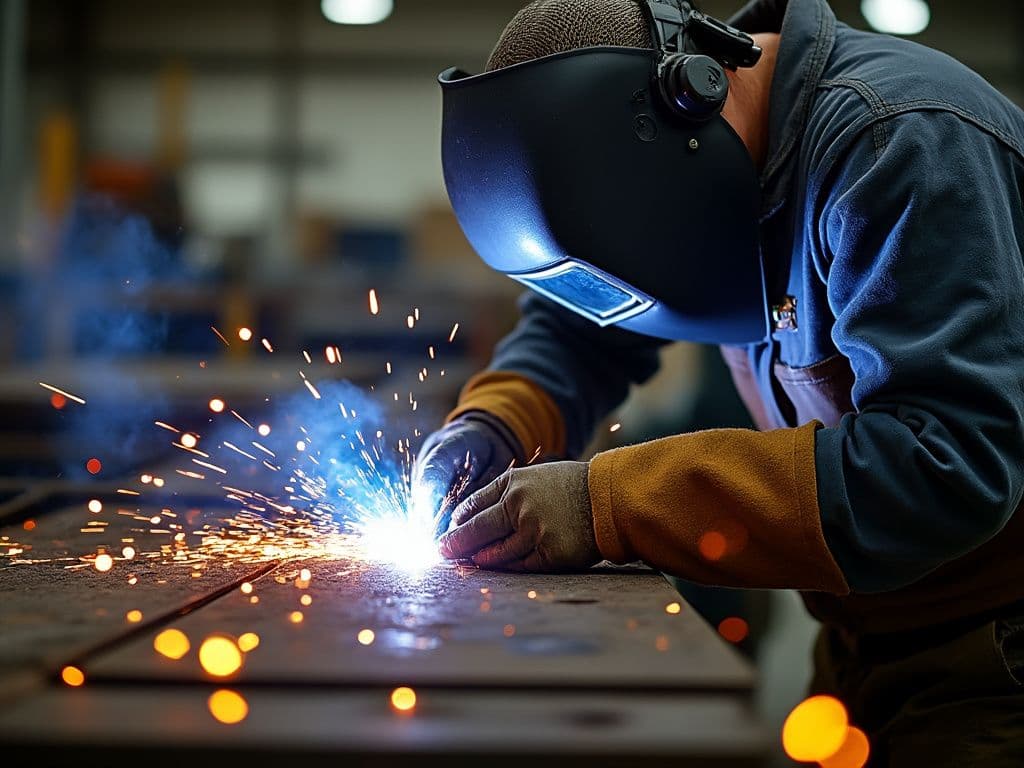
Why a Career as a Welder Could Be Your Path to Success
Welders are the unsung heroes who bring metal structures to life. From skyscrapers to bridges, and even spacecraft, welders play a crucial role in shaping the modern world. If you're looking for a trade that offers hands-on work, job security, and great earning potential, welding could be the ideal career for you.
What Does a Welder Do?
Welders are responsible for joining metal pieces together using a variety of techniques, such as TIG (tungsten inert gas), MIG (metal inert gas), or stick welding. Their work is highly precise and often requires a deep understanding of materials and welding methods to ensure strong, durable bonds.
Welders are employed in multiple industries, including construction, manufacturing, shipbuilding, and even aerospace. The role can vary widely depending on the sector, but all welders share a focus on creating strong, reliable connections between metal parts.
Why Choose a Career as a Welder?
- High Demand
Welding skills are in high demand across several industries, including construction, automotive, oil and gas, and energy. With infrastructure projects and new technologies constantly emerging, welders can find ample job opportunities. - Attractive Salary
Welders can earn competitive wages, with some highly skilled specialists making well over $70,000 per year. As you gain experience and specialization, your earning potential increases. - Variety of Work
Unlike office jobs, welding provides the chance to work in dynamic environments—whether on a construction site, in a factory, or even under the sea for offshore projects. No two days are the same, and each project presents its own set of challenges. - Career Advancement
Welding offers a clear career progression. You can advance from general welding to specialize in high-demand fields like underwater welding or aerospace welding. With certifications, the sky’s the limit for your career growth.
How to Become a Welder
- Education
A high school diploma or GED is generally required to become a welder. High school courses in metalworking, physics, and mathematics can be beneficial. Welding schools and community colleges also offer training programs. - Certification
While not always required, certifications can enhance your job prospects and earning potential. Organizations like the American Welding Society (AWS) offer various certifications that demonstrate expertise in different welding techniques. - On-the-Job Experience
Many welders start as apprentices, learning on the job under the supervision of experienced professionals. This hands-on training is essential for mastering welding techniques and understanding safety standards.
Welding Specializations
- Structural Welder: Works on building projects, joining large metal beams and structures.
- Pipe Welder: Specializes in welding pipes used in industries like oil and gas, as well as water treatment facilities.
- Aircraft Welder: Focuses on the precise and delicate welding required in the aerospace industry.
- Underwater Welder: Works on underwater structures such as oil rigs and ships, often in extreme conditions.
- Automotive Welder: Repairs and builds vehicles, from cars to heavy-duty machinery.
The Future of Welding
The future of welding is bright, with advancements in technology like robotic welding and automated systems. As industries move toward sustainability and greener energy, the demand for skilled welders to work on renewable energy projects, such as solar panel installations and wind turbines, is on the rise.
Ready to Start Your Career in the Trades?
Join our community of successful graduates and take the first step towards your new career.